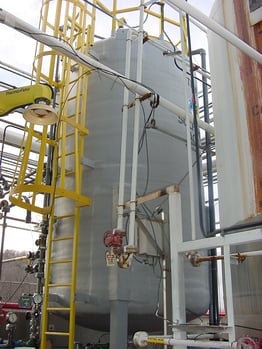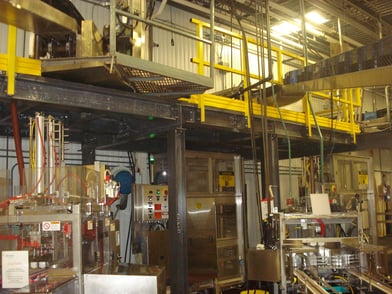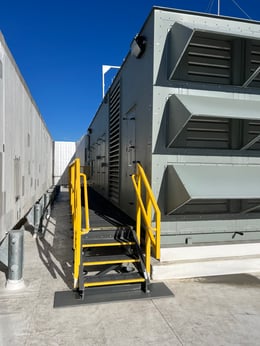FRP material, or fiberglass reinforced plastic, is a game-changing material revolutionizing...
What Is FRP Material and How Is It Used?
FRP material, or fiberglass reinforced plastic, is a game-changing material revolutionizing industries across the board. Its exceptional properties and wide application possibilities make it a highly sought-after choice for engineers, architects, and builders. What exactly is FRP material, and how can it benefit your specific needs?
This comprehensive guide delves into the core of FRP, exploring its composition, advantages, and diverse applications.
What is FRP Material?
Fiberglass reinforced plastic (FRP) is a versatile and robust composite material. It’s formed by combining two key elements:
Fibers: Fiberglass strands, typically made from strong, inert glass filaments, provide exceptional reinforcement and strength.
Resin: A plastic resin binds the fiberglass together, distributing stress and forming a rigid structure.
Resin options:
Polyester: Affordable, versatile, and great for fast curing.
Epoxy: Highly durable and resistant to chemicals but more expensive.
Vinyl ester: Combines the strength of epoxy with better workability.
Understanding the specific properties of different fibers and resins is crucial for choosing the optimal FRP solution for your needs. Also, not all FRP products are created equal. Choosing a trusted manufacturer like Fibergrate, with decades of experience and proprietary formulations, ensures superior performance, quality, durability, and reliability. Note: For additional UV resistance, proprietary formulations and coatings are available.
Advantages of FRP Material
The true power of FRP lies in its remarkable combination of properties:
Strength-to-weight ratio: FRP is very strong yet lightweight, making it ideal for structures requiring high strength but without too much weight.
Corrosion resistance: Unlike metals, FRP is resistant to rust and corrosion, making it an excellent choice for harsh environments like marine applications or chemical plants.
Design flexibility: FRP can be molded into various shapes and sizes and is available in many colors, offering unmatched design freedom for architects and engineers.
Durability and longevity: FRP boasts exceptional durability, lasting for decades with minimal maintenance, reducing long-term costs.
Cost-effective: While the initial cost might be slightly higher than other materials, its longevity and low maintenance make it very cost-effective long term.
Ease of installation: FRP components are typically lightweight and prefabricated, leading to faster and easier installation compared to traditional materials.
UV resistance options: Specific FRP formulations offer UV resistance, making them ideal for outdoor applications.
Diverse Applications of FRP Material
Fibergrate’s FRP has been employed in a variety of industries and settings, such as:
- Architectural and commercial
- Chemical
- Data centers
- Docs and decking
- Food and beverage
- General manufacturing
- Metals and mining
- Oil and gas
- Pharmaceutical
- Pulp and paper
- Recreational
- Technology
- Telecommunications
- Transportation
- Utilities and power
- Water and waste treatment
Manufacturing: FRP's strength and corrosion resistance make it ideal for withstanding high loads and its lightweight nature even reduces strain on structures. FRP is also perfect for ladders, due to its durability and low maintenance.

Fibergrate's Dynaform Ladder |
Food and Drink: From hygienic processing equipment to easily cleaned storage tanks and conveyor systems, FRP ensures food safety and quality with its non-contaminating, chemical-resistant properties. Its smooth surfaces also promote efficient cleaning.

Fibergrate's FRP material used in dairy plant |
Data Centers: FRP can be used to build fire-resistant raised flooring for critical equipment and cable management systems while ensuring efficient airflow. Even cooling towers benefit from its corrosion resistance and durability for optimal data center operation.

Fibergrate's FRP used for a data center in Cupertino |
FRP: A Material Poised for the Future
FRP is not just a material; it's a gateway to possibilities. Its versatility, performance, and sustainability make it a key player in shaping the future of various industries. As technology advances and research continues, even more exciting applications for FRP are on the horizon. The future is built with FRP!
Explore our market overviews to see how FRP is transforming spaces across numerous industries.
Topics: Fiberglass, FRP, Benefits, Corrosion Resistant, Light Weight, manufacturing


.png?width=2000&height=339&name=Blog%20Titles%20Template%20(2).png)
